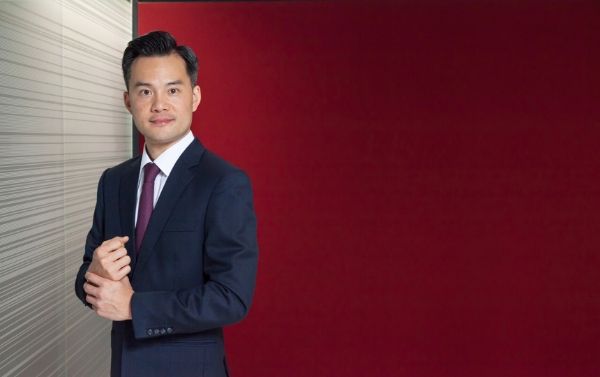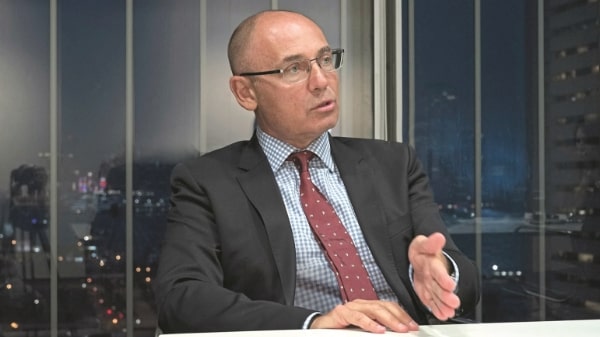In February 2020, HSBC announced the combination of its highly regarded Private Banking business with the high-tech capabilities and global network of its Retail Banking and Wealth Management business. We dive into why this strategy will bring the best of HSBC to Asia and the world.
In these challenging and uncertain times, never has it been more critical for the world’s affluent individuals, families and business leaders to ensure their hard-earned wealth is truly secure while evolving at a pace to support their future needs and growing aspirations. Though the challenge may seem daunting, the right wealth partner can make a world of difference. With its global footprint, expanded wealth management capabilities, and expertise in insurance, asset management, global markets and wealth planning and advisory, HSBC’s holistic, broad range of services strongly positions them to help clients across the wealth spectrum – from first-time savers to ultra-high net worth families and businesses – achieve their goals and ambitions.
The new global Wealth & Personal Banking business manages a staggering US$1.4 trillion in wealth balances, half of which are based in Asia, where they are among the top three global wealth managers. Under its purview, Greg Hingston, Regional Head of HSBC Wealth & Personal Banking, Asia-Pacific, and Siew Meng Tan, Regional Head of HSBC Private Banking, Asia-Pacific, hope to support the region’s prosperous entrepreneurs and families harness the power of their wealth, be it through succession planning, structuring an international asset portfolio or creating a lasting, sustainable legacy.

Success through Global Connectivity
Over the course of its 155-year history, HSBC has emerged as a truly international bank, one with a significant global footprint and cross-business connectivity that it hopes to leverage to attract the burgeoning population of HNW and UHNW individuals in Asia.
For many within this affluent segment, their lives and businesses have grown beyond home borders. Take, for instance, a Hong Kong-based family whose business stretches across Asia-Pacific, and whose children could be studying abroad as far afield as the US or UK. Here, HSBC’s unparalleled global network could deliver commercial banking and investment banking services for their business operations in India, ASEAN or mainland China. Their children, meanwhile, could avail themselves of international banking support, with the family’s overarching complex wealth management needs capably met by HSBC Private Banking in Hong Kong or other global hubs like Singapore.
This is just a taste of the seamless efficiency and connectivity afforded by HSBC’s new Wealth & Personal Banking business. As Tan explains, “The way we can actually support a client across their myriad personal and business needs is unique compared to other players, particularly when you add our retail and transactional banking services as well. By banking with us, our clients can avail themselves of different products across our organisational spectrum.”

Planning for the Future
With over seven decades of experience in wealth planning, HSBC Private Banking is uniquely placed to help forward-thinking families with wealth transfer structures. Says Tan: “Traditionally, Asian families are quite superstitious when it comes to succession planning, but with
COVID-19 looming large on everyone’s mind, it’s no surprise that they are now seriously considering how best to protect their wealth for the future. We help these families to put trust structures in place that can smoothly transition from one generation to the next to create a lasting legacy.”
“They’re also making sure that they can diversify between different types of assets and locations, splitting their portfolio between international wealth hubs like Hong Kong, Singapore, New York, London and even Switzerland.”
Alongside asset and geographical diversification, new generations of entrepreneurial families are increasingly keen on branching out to new areas and enterprises. This, in turn, has led to an increase in impact investing and Environmental, Social and Corporate Governance (ESG) initiatives spearheaded by them to utilise wealth to create a strong positive impact on the wider community.

Bespoke Solutions for Unique Needs
Servicing clients across the wealth spectrum, HSBC is aware of how wide-ranging and multifaceted their needs can be. “The goals of someone with a net worth of US$1 million looks very different from one who has over US$30 million in assets,” says Hingston, “We want to build a far more integrated model that seamlessly allows them to transition through the wealth continuum at HSBC as their needs evolve.”
HSBC’s expansive reach across customer segments based on trusted long-term relationships enables the bank to support clients as their needs change across their wealth journeys – from serving the first mortgage of a Premier customer to their international investment needs when they move to become a Jade customer and then the myriad of more complex and intergenerational requirements of HNW and UHNW clients in Private Banking.
At the top of the pyramid, though, personalisation is the name of the game, particularly as HNW clients and UHNW business owners need increasingly sophisticated and tailored solutions to manage their more complex wealth needs. To meet this demand, HSBC is accelerating investments in technology such as AI-driven data analytics and digitised wealth platforms to deliver a distinctive experience alongside the expertise of its relationship managers and investment specialists.
As the world grows more complex, affluent families and entrepreneurs are realising the inherent need for a trusted partner to help navigate ever-evolving wealth scenarios. With HSBC, they can be reassured of a knowledgeable ally who is not only backed by an extensive global network, but is dedicated to creating innovative solutions to both preserve and grow their wealth for a sustainable future.
The information contained in this article has not been reviewed in the light of your individual circumstances and is for information purposes only. It does not purport to provide legal, taxation or other advice and should not be taken as such. No client or other reader should act or refrain from acting on the basis of the content of this article without seeking specific professional advice.
Issued by The Hongkong and Shanghai Banking Corporation Limited and HSBC Trustee (Hong Kong) Limited.















































